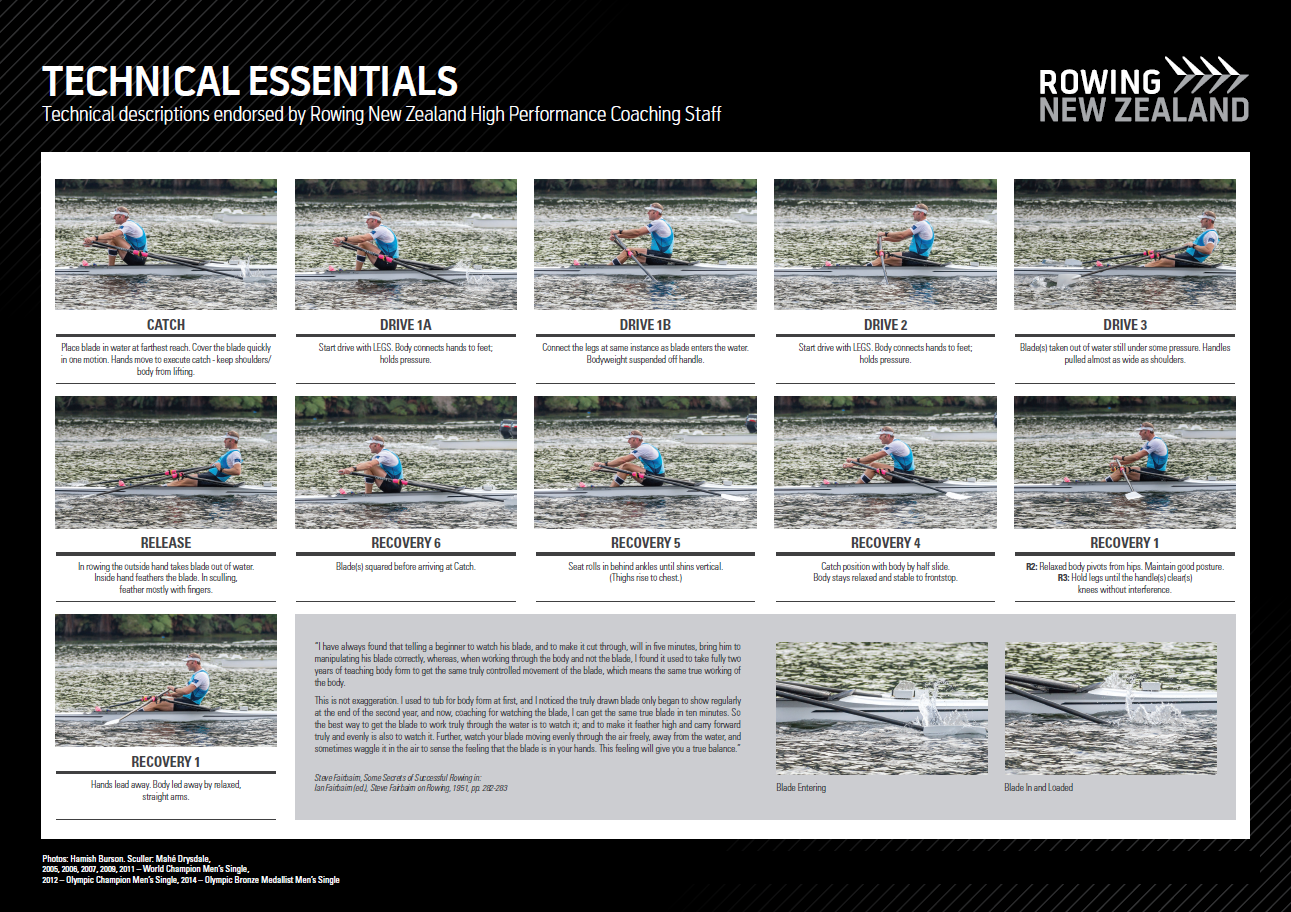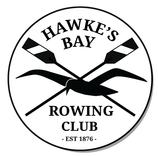
https://rowingnz.kiwi/Category?Action=View&Category_id=490
WHAT IT TAKES TO BE A ROWER
Hard work – Rowing is a high intensity sport. It requires strength and endurance and the ability to work in a team. In order to succeed in rowing, the rower will need to work hard, strive for excellence and continually look for opportunities to improve. Furthermore, the rower will learn about fitness, health and nutrition to get the best out of their bodies as well as remain healthy during the rowing season.
A lot of time – As rowing is a technical sport, the rower will need to spend a lot of time on the water training with fellow rowers. It is essential that the rowers attend trainings so that they don’t let their crew down. The performance of a boat can be compromised if rowers miss trainings. It may result in the crew not being able to train OR the crew trains with others who are not normally in that boat which can make the session far less productive for all involved. Attendance at training is very important.
Self Responsibility – Self responsibility means taking ownership of tasks, being honest, communication with fellow rowers and their parents, doing what you say you will do and being trusted. Safety is vital, particularly on the water.
Self Motivation – Rowing requires self motivation. It is expected that the rowers will exhibit a strong work ethic, both on and off the water. Parents often observe that this permeates more broadly into their school/university work ethic and organisational skills.
Teamwork – Rowing at Hawke’s Bay is not about individuals – it is a team sport. Cooperation and working together are paramount. Teamwork means working together and supporting other squad members to strive for the best performance from the whole squad.
Respect for others – Respect is required through all levels of the club – this is not negotiable. Respect all those involved and in particular the coaches and the decisions they make.
The Club's Code of Conduct (found at the bottom of this page) must be agreed to by all Club members
TECHNIQUE
Like with most sports, rowing is very technical. The coaches are the best people to speak to about technique but this is a good resource to learn more about technique. Click the image to go to the Rowing New Zealand website.
Picture
THE SEASON & CLASSIFICATION
The rowing season runs from September to March or April depending on the timing of the final regatta for the season (see Regattas & Events).
Anyone in their first year of rowing is a Novice, no matter what their age. After competing as a novice, the rowers progress through intermediate, club, senior, premiere and masters. The classification rules and progression are documented in the Rowing New Zealand Rules of Racing: https://www.rowingnz.kiwi/Category?Action=View&Category_id=505.
Rowers can also compete in age categories for Club rowing but when representing their schools, only age group classification stands. In age group rowing, a rower’s age on the first day of January determines which age group the rower is eligible for in that season. The age categories in school rowing are; Under 15, Under 16, Under 17 & Under 18. In club rowing it extends to Under 19, Under 21, and Under 23.
On water and land based training commence around September and depending on the level training sessions can be from four to twice daily. Regular training times are decided amongst squads and are communicated in advance.
Leading up to and after Christmas, the number of training sessions can increase in preparation for regattas, especially after Christmas, leading into North Island and NZ Champs, and school regattas north island secondary school Champs & NZ Secondary School Champs (Maadi Cup).
Some squads have a small break in formal training over Christmas and New Year which is determined by individual coaches so this should be checked prior to planning Christmas holidays. During this time, rowers are expected to continue their fitness/land based programme provided by their coaches to ensure preparedness for the January Hawke’s Bay Regatta
TRAINING
To be successful at rowing, a combination of fitness and technique is required – the fitter the rowers are the better the results they can achieve. The coaches put together on water and land based training programmes to ensure the rowers are extremely fit and technically competent.
The rowers train predominantly at the Hawke’s Bay Rowing Club located on the bank of the Clive River.
Trainings are organised and managed by the coaches. The Coaching Coordinator will issue a training schedule for the respective training groups. Schedules are subject to change and coaches will advise the rowers concerned. The rowers themselves are responsible for ensuring they get to trainings on time and be prepared to train.
Coaches are very strict on timing – if one rower is absent the entire crew may not be able to train. Every member in a boat has a crucial role to play and a crew is let down if rowers are missing. Full commitment to attend training is essential as is arriving on time.
All training sessions whether on or off the water, will be on – rain or shine so please always attend. Rowers should bring enough clothing, shoes, food and water to cover all eventualities as it gets very cold or hot on the water.
Coaches will develop a contact list and means of communication with your rower. This will typically be by text, group message, email or a phone call to rowers and/or parents. Club general notices can also be advertised on the approved Hawke’s Bay Rowing Facebook page.
Rowers must advise coaches immediately and directly if they cannot attend training.
The coaches will provide the rowers with guidelines and expectations for nutrition, sleep, individual training expectations and prevention and care of injuries. They also provide behavourial guidelines. The safety and wellbeing of the rowers at training is the responsibility of the coach. For this reason, rowers must adhere to and follow the directions at all times given by the coaches.
BE PREPARED!
Keep all of your personal gear in the respective changing rooms during training times. Keep valuables, including personal cell phones away and out of sight. Give any other valuables to your coach for safe keeping. Better still – do not bring any valuables to rowing.
On the water, rowing conditions can change very quickly during the course of a session or regatta. Ensure you have the correct clothing for training and have spare or warm clothing if the weather conditions do change. Similarly, if the weather is hot, use hats and sunscreen and drink plenty of water.
Rowers that are feeling unwell or have been unwell must inform their coaches before they start any training sessions.
Ensure any cuts, scrapes or blisters are clean and covered if going out on the water.
TESTING & CREW SELECTION
Crew selections are based on a number of criteria. These can include;
Erg Tests – over the season, several erg tests are undertaken, mainly over a 2km distance
Attendance at training and camps
On Water Seat Racing
Accumulated regatta results
Performance during training sessions
Crew selection takes into account a number of factors. Parents and rowers need to have trust in the crew selection process. Any concerns or issues regarding crew selections must be raised with the Coaching Coordinator.
At any time we are happy to share information on the current performance of your rower. Please do not hesitate to ask the Coach or the Coaching Coordinator for this information. You may have to seek an appointment time rather than asking during training sessions.
SCHOOL VS CLUB REPRESENTATION
The Hawke’s Bay Rowing Club is envied across the country at how a number of schools come together to represent Hawke’s Bay Rowing Club. Due to the low numbers from each school, it is in the rowers’ best interests to row with people of similar stage or ability. These rowers may or may not be from the same school. A number of rowers will be selected to represent their club or school at North Island or National level.
New Paragraph
